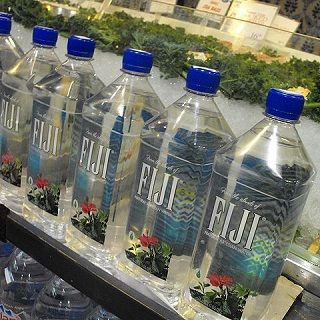Does It Pay to “Go Green?”
Unfortunately, this week’s conference at UCLA — The Financial Implications of Going Green — featured a few “corporate commercials,” i.e., shameless, disingenuous (and dull) promotion of an organization’s work in becoming a better steward of the environment, with little or no value to the audience. It upsets me to hear about a guy droning on about how the parent company of Fiji bottled water, an environmental obscenity if there ever were one, is installing solar panels on its headquarters roof.
Having said that, there were a few excellent presentations, including an interesting analysis of the circumstances under which certain companies clearly “do well by doing good.” In particular, a great number of case studies point to significant value accruing to companies that are sincere about sustainability initiatives, not only in terms of public image, but in terms of their ability to attract, engage and retain high-quality employees.
This is certainly a result that has intuitive appeal. No one wants to work in a setting that is oppressive, filling the world with damaging products that come at a terrific expense to the planet, and this is especially true of bright, thoughtful people. This phenomenon explains, for instance, the steady stream of requests I receive from young people willing to do unpaid internships; some folks simply want to get behind the large and growing movement to improve conditions on the planet.


Regarding Fiji Bottled Water, I lived in Fiji from 1994 to 2004. I agree that using bottled water is usually irresponsible from a number of standpoints, but let us consider why Fiji produces it.
Fiji Bottled Water has improved the lives of many villagers in Fiji who are employed by the company and who would otherwise have difficulty making ends meet and getting their children educated through high school. Naturally they support the bottled water. Also, it is heavily taxed by the dictatorship, so naturally the dictatorship supports it.
In 2006, the legally elected government in Fiji was overthrown by a military coup. Since then, Fiji has been under military dictatorship and, although the dictator may appear to be preparing Fiji for a return to democratic government, there is ample reason to question his motives. When people buy Fiji Bottled Water, they are supporting the dictatorship. If people knew that, would they continue to buy the product? It is an important source of income for the dictatorship.
It’s amazing how popular Fiji Bottled Water is; it seems to be available in most super markets and even in organic food coöps, including the one three blocks from my house.
There are circumstances where bottled water can be justified, such as for people in areas where the piped water is substandard, or when a water main breaks and piped water is briefly not available. But as an item for routine consumption, it usually is irresponsible to use it.
Here is a link to information about the current situation in Fiji; people who are interested can arrange to receive continuing updates and make comments:
http://fijitoday.wordpress.com/